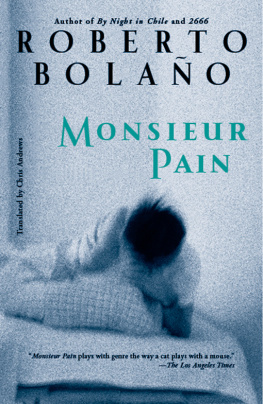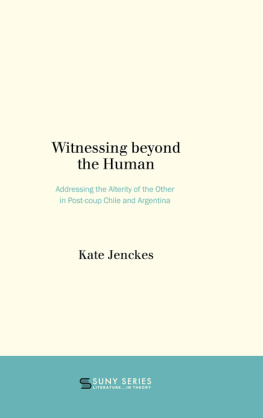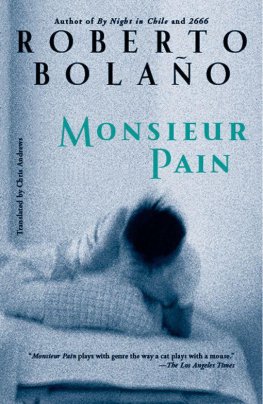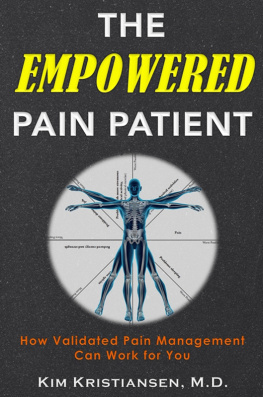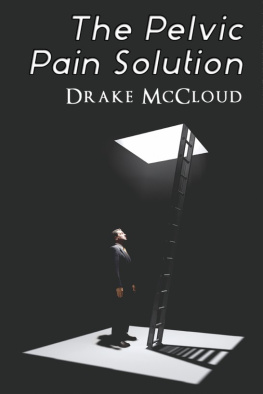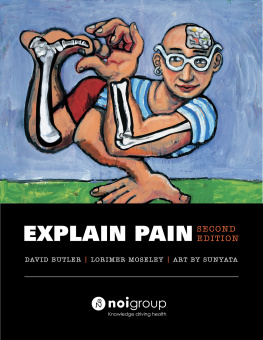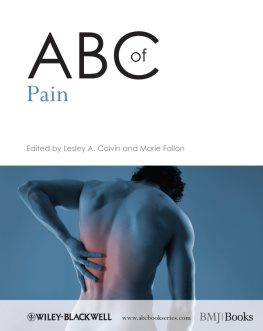PRELIMINARY NOTE
Many years ago, in 1981 or 1982, I wrote Monsieur Pain. Itsfate has been haphazard and erratic. Under the title The Elephant Pathit won the Felix Urubayen prize for a short novel, awarded by the Toledo CityCouncil. Not long before, it had been short-listed in another provincialcompetition, under a different title. I won three hundred thousand pesetas inToledo. And around a hundred and twenty thousand in the other city, as I seem torecall. The Toledo City Council published the book and made me a judge for thefollowing year. In the other provincial capital they forgot about me even soonerthan I forgot about them, and I never found out whether or not the novel hadbeen published there. All this is recounted in a story in Last Evenings onEarth. Time, that consummate joker, has subsequently sent a number ofmajor prizes my way. But none of them has meant as much to me as those awardsscattered over the map of Spain: buffalo prizes I had to go hunting like aredskin whose life is on the line. Never have I felt as proud or as wretched tobe a writer. Theres not a lot more I can say about Monsieur Pain.Almost all the events related actually occurred: Vallejos hiccups, the carriage a horse-drawn carriage that ran over Curie, his last experiment, or one ofhis last, which touched on certain aspects of mesmerism, the doctors who were sonegligent in their treatment of Vallejo. Even Pain is real. Georgette mentionshim on a page of her passionate, bitter, helpless memoirs.
Also by Roberto Bolao
Available from New Directions
Amulet
Antwerp
Between Parentheses
By Night in Chile
Distant Star
The Insufferable Gaucho
Last Evenings on Earth
Monsieur Pain
Nazi Literature in the Americas
The Return
The Romantic Dogs
The Skating Rink
Tres
Monsieur Pain
ROBERTO BOLAO
Translated from the Spanish by Chris Andrews
A NEW DIRECTIONS BOOK
Copyright 1999 by Roberto Bolao
Translation copyright 2010 by Chris Andrews
Originally published by Anagrama, Barcelona, Spain, as Monsieur Pain in 1999; published by arrangement with the Heirs of Roberto Bolao and Carmen Balcells Agencia Literaria, Barcelona.
All rights reserved. Except for a brief passage quoted in a newspaper, magazine, radio, television, or website review, no part of this book may be reproduced in any form or by any means, electronic or mechanical, including photocopying and recording, or by any information storage and retrieval system, without permission in writing from the Publisher.
Library of Congress Cataloging-in-Publication Data
Bolao, Roberto, 19532003.
[Monsieur Pain. English]
[Monsieur Pain / Roberto Bolao ; translated by Chris Andrews.
p. cm.
Originally published by Anagrama Barcelona Spain, as Monsieur Pain in 1999.
ISBN 978-0-8112-1714-9 (hardcover : alk. paper)
ISBN 978-0-8112-1889-4 (pbk. : alk. paper)
eISBN 978-0-8112-2055-2
1. Vallejo, Csar, 18921938Fiction. 2. MesmeristsFiction. 3. MesmerismFiction. 4. OccultismFiction. 5. Unrequited loveFiction. 6. Paris (France)Fiction. I. Andrews, Chris, 1962 II. Title.
PQ8098.12.038M6613 2010
863'.64dc22 2009037431
10 9 8 7 6 5 4 3 2 1
New Directions Books are published for James Laughlin
by New Directions Publishing Corporation,
80 Eighth Avenue, New York 10011
10 9 8 7 6 5
for Carolina Lpez
P. Does the idea of death afflict you?
V. (Very quickly.) Nono!
P. Are you pleased with the prospect?
V. If I were awake I should like to die, but now it is no matter. The mesmeric condition is so near death as to content me.
P. I wish you would explain yourself, Mr Vankirk.
V. I am willing to do so, but it requires more effort than I feel able to make. You do not question me properly.
P. What then shall I ask?
V. You must begin at the beginning.
P. The beginning! But where is the beginning?
Mesmeric Revelation
Edgar Allan Poe
EPILOGUEFOR VOICES:
THEELEPHANT TRACK
PARIS, 1938
On Wednesday the sixth of April, at dusk, as I was preparing to leavemy lodgings, I received a telegram from my young friend Madame Reynaud,requesting, with a certain urgency, my presence that evening at the CafBordeaux, on Rue de Rivoli, relatively close to where I live, which meant thatif I hurried, I could still arrive punctually at the specified time.
The first indication that I had just been drawn into a singularepisode presented itself immediately: as I was going down the stairs I cameacross two men climbing up to the third floor. They were speaking Spanish, alanguage I do not understand, and wearing dark trench-coats and broad-brimmedhats, which, since they were below me on the stairs, obscured their faces.Because of the semi-darkness that generally prevails in the stairwell, but alsobecause of my quiet way of moving, they failed to notice my presence until I wasright in front of them, a mere three steps away, at which point they stoppedtalking, and instead of stepping aside and allowing me to continue on my waydown (the stairs are wide enough for two but not three people abreast), theylooked at each other for a few moments that seemed to be fixed in a simulacrumof eternity (I should stress that I was a few steps above them), and then,slowly, very slowly, they trained their gazes on me. Policemen, I thought, onlypolicemen have preserved that way of looking, an atavism that goes back tohunting and dark woods; then I remembered that they had been speaking Spanish,so they could not have belonged to the police force, or not the French policeforce, at any rate. I thought they were readying themselves to speak, to jabberas disoriented foreigners always do, but instead the one directly in front of melurched aside in the clumsiest imaginable fashion, and pressed against theshoulder of his companion in a way that surely must have been uncomfortable forboth of them, at which point, having pronounced a brief and unreciprocatedgreeting, I was able to continue my descent. Out of curiosity, when I reachedthe first-floor landing, I glanced back at them: they were still there, standingon the very same steps, I would swear, faintly illuminated by a globe suspendedover the landing above them, andeven more surprisinglystill holding the exactposition they had adopted in order to let me pass. As if time had stopped, Ithought. When I reached the street I found it was raining, and I forgot allabout that incident.
Madame Reynaud was seated against the far wall of the restaurant, herback held very straight, as usual. She seemed impatient, although when shecaught sight of me her expression softened, as if a sudden relaxation were theappropriate manner in which to indicate that she had recognized me and waswaiting.
I want you to see the husband of a friend of mine, was the firstthing she said, as soon as I took my place in front of her, facing an enormouswall-mirror, in which the restaurant could be surveyed almost in itsentirety.
Guided by some recondite analogy, I remembered the face of her younghusband, who had died not long before.
Pierre, she repeated, stressing each word, you must see my friendshusband, professionally, its urgent.
I think I ordered a glass of mint cordial before asking what illnessMonsieur...
Vallejo, said Madame Reynaud, adding, with equal concision,Hiccups.
I dont know why fragmentary images of a face, which could have beenthe face of the late Monsieur Reynaud, superimposed themselves on the peopledrinking and chatting at the nearby tables.
Hiccups? I asked with a sad smile that was intended to berespectful.
Hes dying, my interlocutor affirmed vehemently. No one knows why;its no joke. You have to save his life.
Next page
